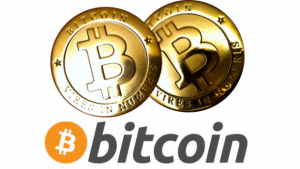How Important Is Bitcoin, Really?
 There’s been a lot of negativity in the Bitcoin world lately. The price of a Bitcoin is in freefall. It gets a lot of notoriety for being the preferred currency of the modern crime world with the most recent being a bit of ransomware that held a police department’s computer network hostage until it sent a Bitcoin payment worth $300. On the flip side, many charities accept Bitcoin donations and it’s rapidly becoming a favorite among freelancers who have gotten sick of the transaction fees associated with other forms of payment. Considering the ease with which Bitcoin can cross international boundaries, it would be so easy for cryptocurrencies to become the preferred method for handling payments when dealing with the global economy.
There’s been a lot of negativity in the Bitcoin world lately. The price of a Bitcoin is in freefall. It gets a lot of notoriety for being the preferred currency of the modern crime world with the most recent being a bit of ransomware that held a police department’s computer network hostage until it sent a Bitcoin payment worth $300. On the flip side, many charities accept Bitcoin donations and it’s rapidly becoming a favorite among freelancers who have gotten sick of the transaction fees associated with other forms of payment. Considering the ease with which Bitcoin can cross international boundaries, it would be so easy for cryptocurrencies to become the preferred method for handling payments when dealing with the global economy.
A lot of detractors dismiss Bitcoin as not that important, though. It’s a niche thing. It wouldn’t ever pose a serious threat to mainstream financial systems. If that’s true, Bitcoin likely wouldn’t be mentioned much outside of its highly-enthusiastic community except as a funny gimmick. The financial sector wouldn’t be trying to regulate it to death with schemes like New York’s BitLicense if Bitcoin is just the way that geeks do finances. There’s something about Bitcoin that smells funny to the Wall Street crowd and that smell isn’t going away.
In fact, as a currency, Bitcoin might not mean that much as even the preferred currency of black markets. How many drug dealers had even heard of Silk Road before the news broke that data on its server had been seized? The dollar figures in fiat currency seized in drug busts can be quite impressive, including one recent Nashville-area cocaine bust in which over $900,000 was seized. Bitcoin wasn’t even mentioned in the news report. Bitcoin is one of several options for buying and selling goods of any type and it’s a relatively new one at that. Besides, the fact that many nonprofit organizations accept Bitcoin donations should be proof enough that Bitcoin is yet another technology that can be used for aboveboard activities as readily as for illicit ones.
What Bitcoin represents is a new way of doing business that doesn’t rely much on middlemen. At most, transactions are being routed through nodes that charge transaction fees that amount to a few cents per transaction – barely even noticeable when you can watch Blockchain.info and see the occasional transaction worth tens of thousands of dollars. Those fees wouldn’t even exist if you’re running your own Blockchain application with nodes that you have full control over. Even the electric bill associated with running nodes can be worked around if you care to put together a modest renewable energy getup.
I said the other B-word, didn’t I? Many observers say that the Blockchain is the real breakthrough and Bitcoin mostly served the purpose of getting people’s attention along with making a few early adopters rich. The Blockchain is basically a kind of secure ledger that relies on processing power and consensus among the parties responsible for maintaining it to function. It’s easy to fork a chain and set a node to create records on the new chain but harder to get other nodes working on the original chain to agree that the records you created are valid ones.
Suggested uses of Blockchain technology include just about any activity that would benefit from a tamper-resistant ledger that can update its records in real-time. Somebody once cheekily suggested an application for fantasy football records. More serious uses include “smart” contracts that can reverse themselves if certain conditions are not met and a ledger for notarized documents. When you can use the Blockchain for what amounts to a marriage contract that nobody has to go to the courthouse for, you know you’re doing something right when it comes to helping people avoid a messy divorce battle if the marriage goes sour. One partner may be fully justified in simply walking away and the contract could theoretically simplify the process by reversing the marriage and activating any “pre-nup” clauses as soon as that partner hits the door with suitcase in hand.
Who needs to drag the thing through the courts when the divorcées are probably in a foul enough emotional state over a failed marriage anyway? That’s what the Blockchain is good for. You have the strength of a tamper-proof contract on your side, plus less need to go to the courts if you get cheated because the contract itself can be programmed in advance to make sure you get ownership of your original assets back if the deal goes south.
As far as significance goes, cryptocurrencies could be seen as the middle ground between keeping your money in a checking account and stuffing it into a mattress, minus worries about inflation. Many governments and financial institutions are having their, “Oh, crap,” reaction because they won’t be able to inflate away people’s savings for their own benefit if Bitcoin gains a significant market share. Others are getting smart and studying the technology behind cryptocurrencies for the purpose of seeing how it can best benefit them. Kenya seems okay with letting Bitcoin work alongside its successful MPesa program to put a medium of exchange in the hands of people who don’t have easy access to banks. On the flip side, many countries that one would think would benefit most from cryptocurrencies, such as Argentina with its hyperinflation problem, are making it difficult for their citizens to obtain and use Bitcoin. Which one will get farther in solving the economic problems that Bitcoin could assist with?
It’s difficult to contain an idea once it’s been let out of the bag and gotten as far as Bitcoin has. As a technology, cryptocurrencies and especially the Blockchain ledger system could hang in there as a niche thing that some people prefer to use rather than going with mainstream options. For instance, people who don’t have enough assets to get the banks to even talk to them may find Bitcoin easier to use than mainstream financial services. Bitcoin isn’t replacing mainstream options in this case. It’s just finding its own market in a world that is almost ready for a true global economy.
More About The Blockchain
[simple-rss feed=”http://rest.ebay.com/epn/v1/find/item.rss?keyword=%28bitcoin%2Cblockchain%2Ccryptocurrency%2Clitecoin%2Cdogecoin%29&sortOrder=BestMatch&programid=1&campaignid=5337337555&toolid=10039&listingType1=All&lgeo=1&feedType=rss” limit=10]








